The Peres Center for Peace and Innovation honored 11 women from across Israeli society and industry with an inaugural Medal of Distinction ahead of the annual International Women’s Day, marked on March 8.
The Medal of Distinction recognizes women from a diverse range of backgrounds and communities who are leaders in their fields and serve as role models for women and girls everywhere. The award will be granted annually on International Women’s Day to honor outstanding women making significant contributions in their fields, the Peres Center said.
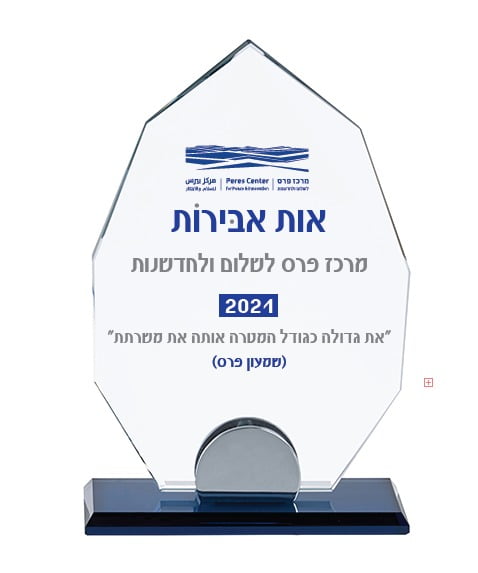
At a ceremony held last week, diamond-shaped medals were presented to the 11 recipients bearing the words of the late Israeli president Shimon Peres, “You are as great as the cause you serve.”
The event was hosted by Efrat Duvdevani, director-general of the Peres Center for Peace and Innovation), Professor Tsvia Walden, board member of the Peres Center for Peace and Innovation, and daughter of Shimon Peres, and Chemi Peres, chairman of the Peres Center and son of Shimon Peres.
Speaking at the event, Professor Walden said, “We join the women and men of the world who understand what our father said for many years, that as long as women are not an active and equal part in everything that happens in society and indeed the world, then our world will be worth only half.”
SEE ALSO: Chemi Peres: Coronavirus Crisis Highlights Need For Innovation, Global Collaboration
“I grew up in an extraordinary home, where both my mother and sister were exemplary women with many accomplishments,” said Chemi Peres. Growing up in a house with two such women prepared me better for life. I welcome this new initiative and the tradition we have started here today.”
Women of distinction
Duvdevani tells NoCamels in a phone interview that the Peres Center established the Medal of Distinction program to honor women looking to bring about significant change while working to make the world a better place.
“We thought that in this especially difficult year, we would recognize the light that women shine, and we believe the best way to do that was to highlight the women who are serving as examples,” she says.
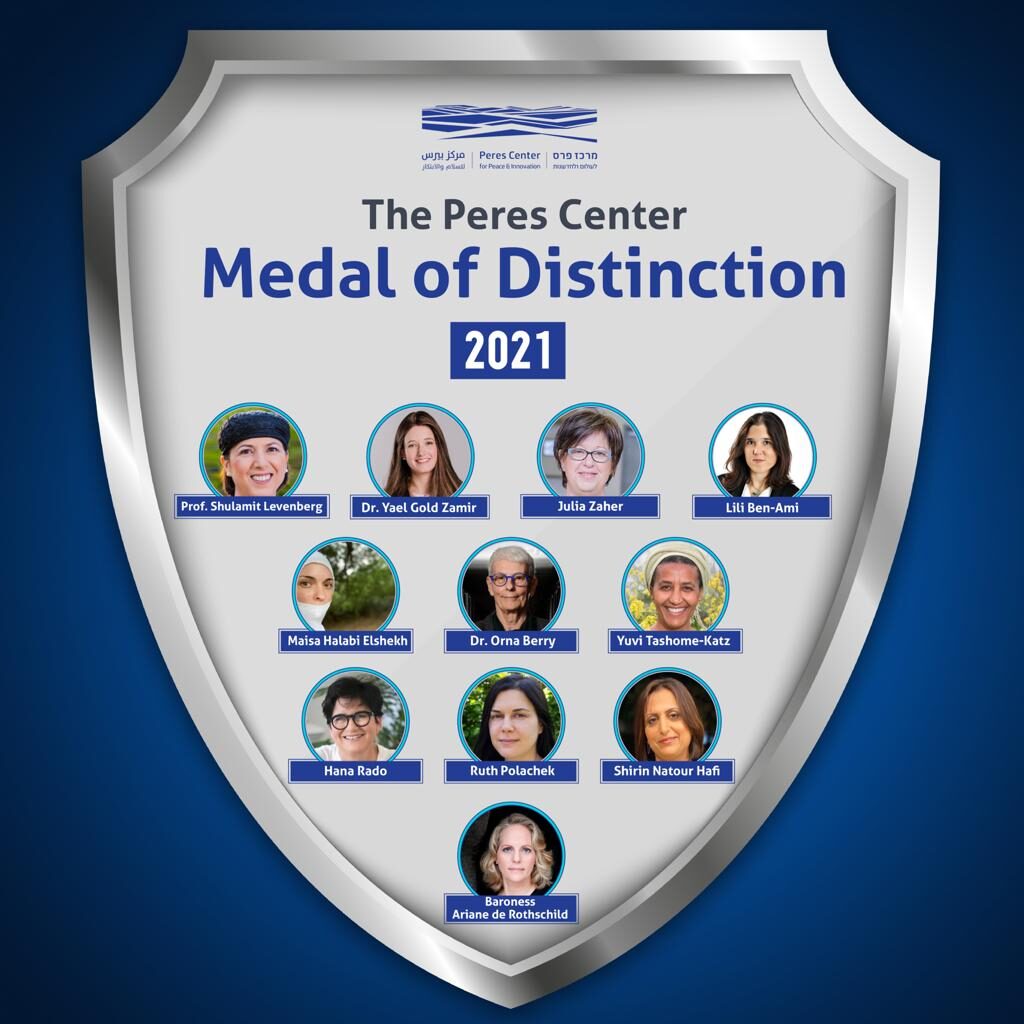
The 11 women were selected using three criteria, Duvdevani explains. First, the recipients needed to be inspiring role models and examples. Second, they needed to be working to pave the way for others and create new opportunities for other women. And third, they needed to be involved in making the world a better place with an emphasis on inclusivity and diversity.
“It’s great that many of them are successful, but we were also looking for those with something more,” she explains.
The 11 recipients are:
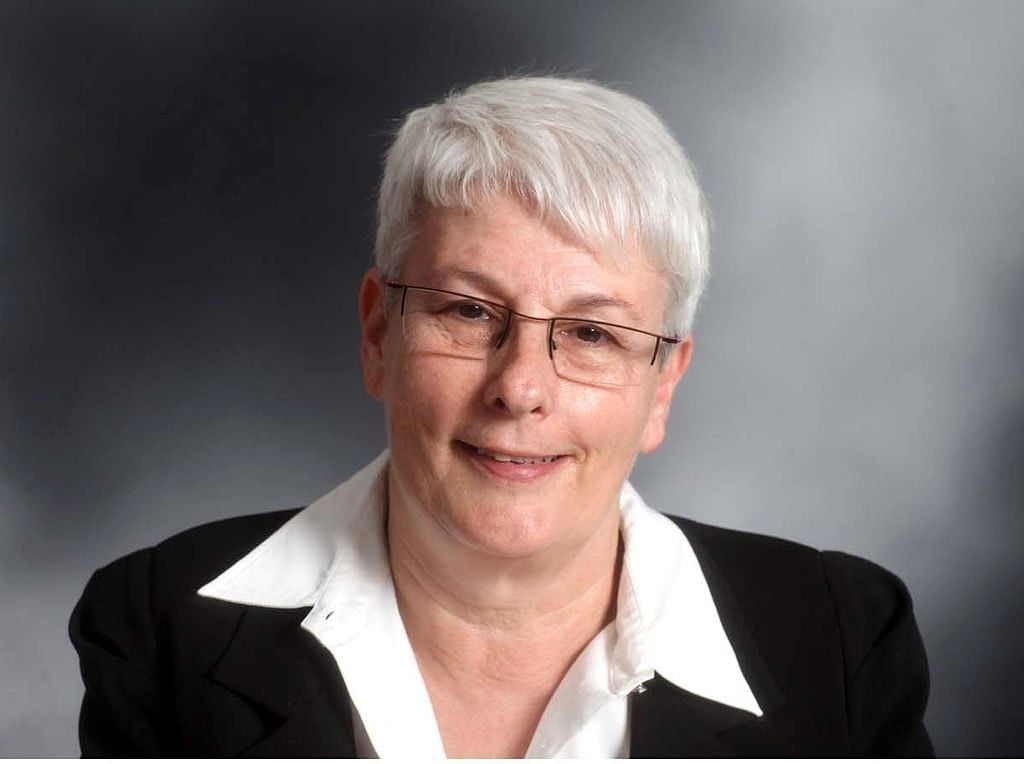
Dr. Orna Berry, an award-winning scientist, high-tech entrepreneur, and senior executive with over 30 years of experience in the tech and science fields. A leading businesswoman dubbed the “first lady of Israeli high-tech,” she was Israel’s first (and only, so far) female chief scientist at the Economy Ministry’s Israel Innovation Authority, serving in that role in the late 90s.
She was also the first Israeli woman to make an exit when she sold her company Ornet to the European Siemens Corporation in 1995. In 2018, she announced her retirement as corporate vice president and general manager of research and development for Dell EMC in Israel after eight years.
Throughout her career, Dr. Berry has been the recipient of various awards, including the “WITI Hall of fame” award by WITI Women in Technology International; the “Yakirat Ha’Negev” award from Ben Gurion University, for establishing an EMC R&D branch in the heart of Israel’s desert; and the Viterbi Award from the University of Southern California (USC) for integrating entrepreneurship with professional excellence.
Dr. Berry suffers from cancer, a journey which she describes here (in Hebrew), and for which she receives treatment in Israel to be close to family and friends. Berry has also revealed that she is a survivor of domestic abuse.
“The range of women who are here today cover all the areas in need in the country today. With the right commitment and skills we can do it,” Dr. Berry said in a statement.
Professor Shulamit Levenberg, dean of the Faculty of Biomedical Engineering at the Technion – Israel Institute of Technology, and one of the world’s leading scientists in the field of tissue engineering.
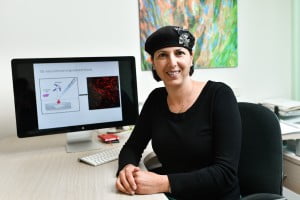
She heads the university’s stem cell and tissue engineering lab and her work has shown that it is possible to generate tissues and blood vessels in a lab that can in the future be implanted and integrated into human hosts.
The development is expected to allow, for the first time, a paralyzed body to regain the ability to walk. The development also serves as the basis for Aleph Farms, a clean meat Israeli company that unveiled the world’s first lab-grown steak prototype grown from animal cells and for which she serves as co-founder and Chief Scientific Officer
Professor Levenberg has co-authored more than 100 publications, including six in 2019. In 2007, she appeared on Scientific American’s list of 50 leading scientists. She was also named one of 50 influential women in 2019 by Israeli magazine Lady Globes.
“This is very moving. I would like to mention a saying of Rabbi Kook, which has always accompanied me – ‘Rise up. Rise up, for you have the strength to do so. You have wings of the spirit,'” Professor Levenberg said as a recipient of the Peres Center’s Medal of distinction.
Julia Zaher, an Arab-Israeli entrepreneur and the owner and CEO of the Al-Arz tahini factory. She is the first Arab woman to run a factory and serves as chair of the JDC’s ‘delivery’ fund.
In 2019, Globes Magazine named her one of the 50 most influential women in Israel. Last year, Zaher stirred some controversy when she announced that Al-Arz would donate funds to an NGO focused on supporting the LGBTQ community, with the aim of establishing an Arabic outreach program. This is the first time that an Arab-owned, Israeli food company has expressed public support for this community – a groundbreaking act.
“My life was not easy, but I set a goal and used all my might to break the glass ceiling. Every obstacle gave me tremendous strength. Throw your fears into the sea. Believe it is your time and do it,” Zaher said.
Maysa Halabi, a Druze entrepreneur who founded the Lotus project which trains religious Druze women in software development and assists them in joining global high-tech companies. The program is run from a dedicated center in the northern Israeli town of Isfiya. The first 14 graduates of the Lotus project are currently working in leading companies such as Amdocs, Broadcom and Orbit, according to the Peres Center announcement.
“I am proud of what I represent and I am even more proud of the women who believed in a small dream three years ago, despite the difficulty we religious Druze women face, and believed that the impossible can be possible,” Halabi said.
Lily Ben Ami, the founder of the Michal Sela Forum named after her sister, Michal Sela, a domestic abuse victim murdered by her husband in October 2019 in front of their eight-month-old child.
Sign up for our free weekly newsletter
SubscribeFollowing the murder, Ben Ami began working to shift the discourse around domestic violence from a discussion of victimhood, to a discussion of solutions. Through her work, she aims to harness the technology and capabilities of the Startup Nation to fulfill her vision of putting an end to violence against women.
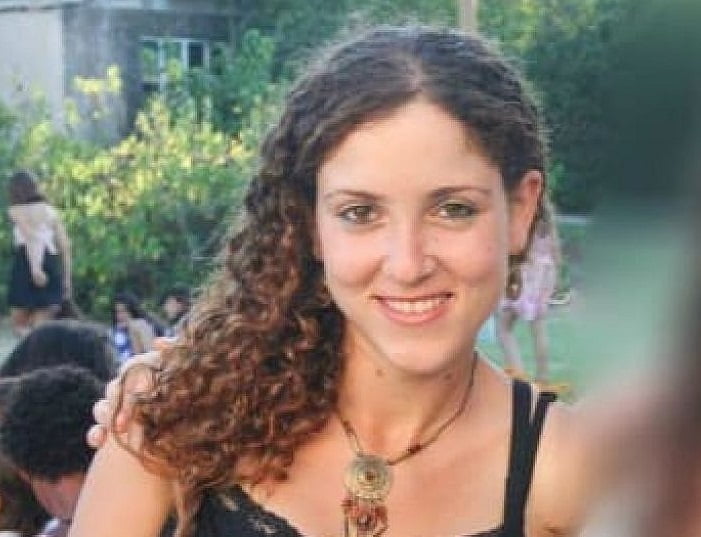
SEE ALSO: Facebook Donates Prize To Winner Of Israeli Hackathon Tackling Domestic Violence
Last year, the forum put together a hackathon that would tackle domestic violence and hosted participants from Israel’s tech ecosystem who will offer solutions, create initiatives, and help raise awareness about domestic abuse.
The Michal Sela Forum partnered with the Peres Center for Peace and Innovation and the President’s Residence in Jerusalem for the event. Tech partners also included Wix, Microsoft Israel, Facebook, Mobileye, Intel, and Amdocs.
Speaking at the event, Ben Ami said at the time, “Michal did not know her life was in any danger. We didn’t know either. We cannot go back in time. We can move forward. So, we are here, to save the next victim of murder. Israel is a global start-up and counter-terrorism superpower. Today, together, we have taken a first small step. For the future. The goal: to turn Israel into a global superpower in preventing domestic terrorism. The aim: zero murders a year.”
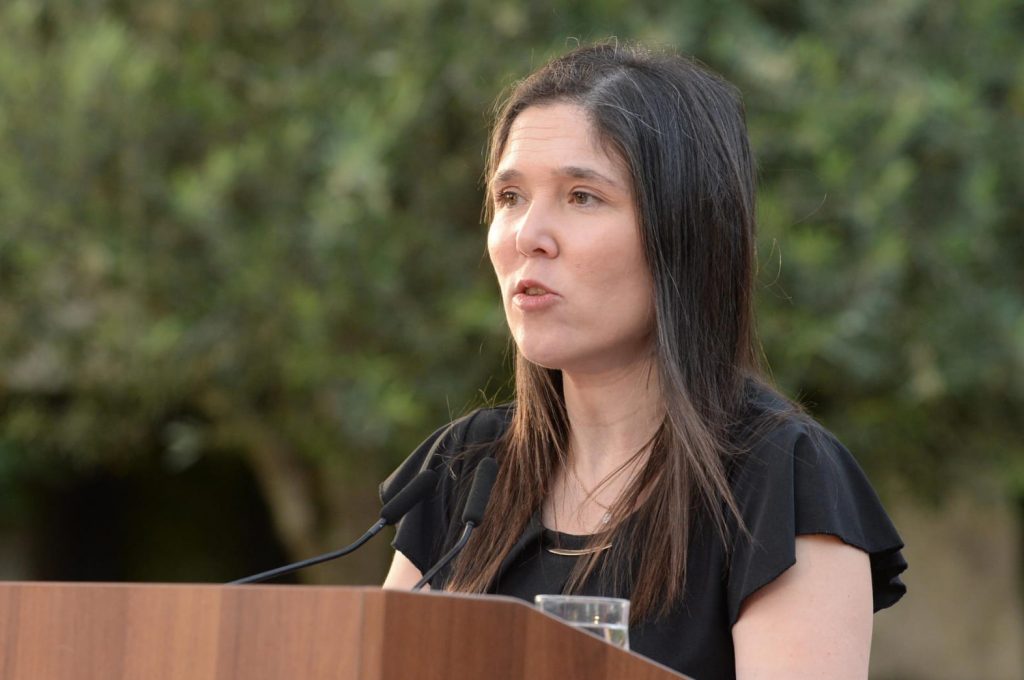
Of the Medal of Distinction, Ben Ami said: “Shimon Peres said that International Women’s Day should be called Humanity Day because a society that harms women is a society without humanity. A man who harms a woman harms and destroys the future of his children.”
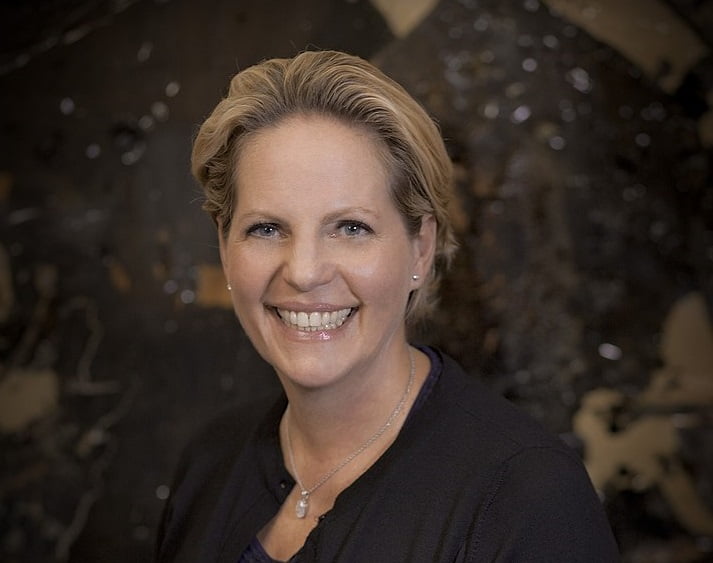
Baroness Ariane de Rothschild, a French banker and philanthropist. She is responsible for the Edmond de Rothschild Foundation’s support for projects dedicated to supporting art and culture, health and research, environment, social entrepreneurship and intercultural dialogue, directing funds annually for such initiatives.
“I loved Shimon Peres very much, he made sure to empower women from all walks of life, always made sure to promote diversity and acceptance of the other,” she said. “I shall always remain grateful to him for the guidance he provided in asserting my own stance, not only as a wife and a mother, but also as a female banker in a business environment that all too often goes on stigmatizing women.”
Shirin Natour-Hafi, the principal of the first Arab public high school, ORT School for Science and Engineering, in the city of Lod. The school is located in the “Railway” neighborhood, known for its low socio-economic profile and high crime rate. When she started her position in 2009, the school had 150 students, and today there are 7,711 students enrolled in grades 7-12.
In 2013, Natour-Hafi was chosen as a member of the World Economic Forum’s Young Global Leaders, a selective cohort of young professionals from all over the world. In 2020, she received an honorary PhD in philosophy from the prestigious Weizmann Institute.
“In this country, I have always been exceptional and the message at home was that I am special and not exceptional. I think that if we raise children to feel special and not exceptional, combined with people who will open doors for us, the sky is the limit,” Natour-Hafi said.
Yuvi Tashome-Katz, an Ethiopian-Israeli entrepreneur and social activist, with extensive experience in training and community work. She worked as an instructor at the Mandel Institute for Leadership and the Green Network, an organization that strives for environmental and social change.
In 2005, she co-founded the Friends in Nature Association, which aims to form tight-knit communities of young adults, led by successful Israelis of Ethiopian descent, serving as role models to their peers. In 2011, Tashome-Katz was selected to light a torch in Israel’s Independence Day state ceremony on Mount Herzl. That same year, she also received the Prime Minister’s Award for Entrepreneurship and Nonprofit Innovation.
“When I think of innovation and initiative, I think of how all the women in the villages in Ethiopia were entrepreneurs. They all knew how to do a lot of things. From a place of difficulty, they brought wisdom and created opportunities,” Tashome Katz said.
Hana Rado, a leading businesswoman and social entrepreneur. In 2012 she founded “McCann Valley”, a digital media agency in Mitzpe Ramon with the aim of creating jobs in Israel’s more remote “periphery.” In 2017, Rado led the establishment of “Spring Valley”, a digital solutions hub in northern Israel.
“We have excellent professional women who are hidden from view because they live in the geographical periphery. They are part of the future of our country, yet we rarely think of them and that is a loss for us all,” Rado said.
Dr. Yael Gold-Zamir, the first Israeli, ultra-Orthodox woman to graduate from medical school and one of the few tech entrepreneurs in her community. She is the founder of Embryonics a startup that harnesses AI technology to improve the chances of success of in vitro fertilization (included in our article Baby Tech: 9 Israeli Innovations Reinventing Pregnancy And Infant Care).
Embryonics recently reported six successful IVF pregnancies using the AI technology to select which embryo to implant in a patient. Usually, it is the job of an embryologist, a fertility specialist, to decide which embryo to use in IVF treatment.
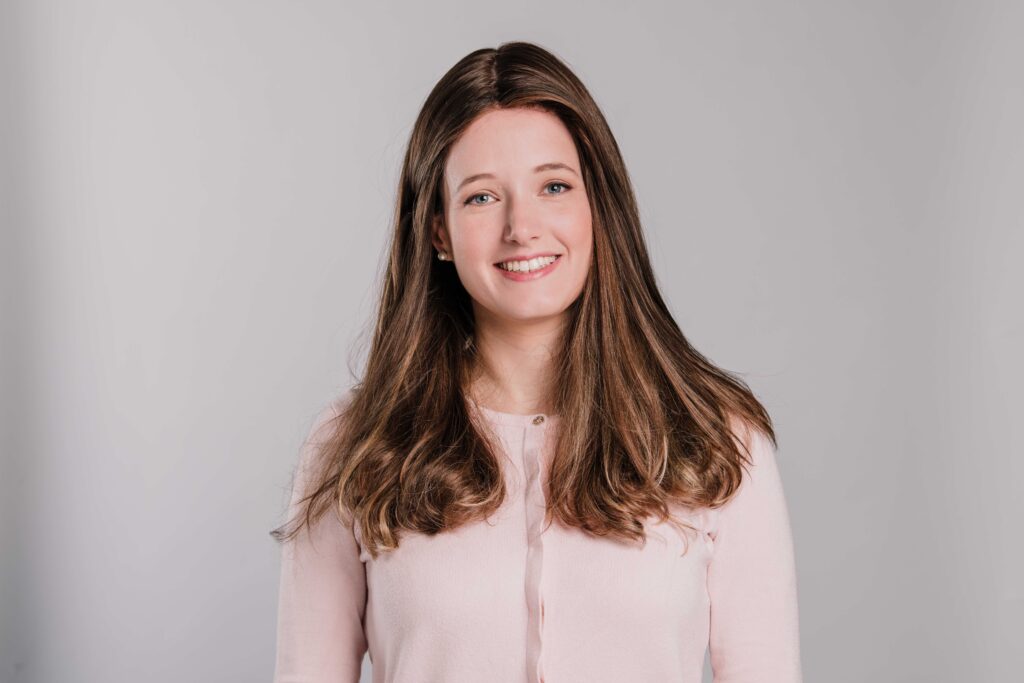
The startup says its technology, called Ubar (fetus in Hebrew), outperformed a panel of embryologists in predicting which embryos will result in pregnancy by about 20 percent, according to the company. The Israeli AI startup also outperformed human experts by nearly 30 percent in recommending which embryos not to use.
Embryonics has an ongoing clinical study at the Nadiya Clinic of Reproductive Medicine in Kyiv. The six reported pregnancies are part of this study and five other participants now awaiting test results.
Embryonics is planning to run a clinical trial at several sites in the United States and expects to get approval from the FDA by the end of 2021.
“The message of this ceremony is a message of empowerment and female leadership and it is a great privilege to be a part of this voice and message,” said Dr. Gold-Zamir of the Peres Center event.
Ruth Polczak, a high-tech entrepreneur, and founder and CEO of “Fincheck”, a fintech company that enables users to make informed decisions about their expenses, loans and finances.
SEE ALSO: Israeli Women Lead The Way In Thriving Biotech Industry
She is also the founder and chairwoman of the board of “She Codes,” an Israeli community of over 20,000 female programmers, engineers, and entrepreneurs. The organization has set the goal of integrating as many women as possible in the high-tech industry, ultimately aiming to reach 50 percent female representation in high-tech within a decade.
“Perseverance, faith and community are important,” said Polczak. “You can do everything if you just believe and persevere. 100 years ago we could not vote but we have come a long way. You can look to the future and be optimistic.”
Related posts

Editors’ & Readers’ Choice: 10 Favorite NoCamels Articles

Forward Facing: What Does The Future Hold For Israeli High-Tech?

Impact Innovation: Israeli Startups That Could Shape Our Future


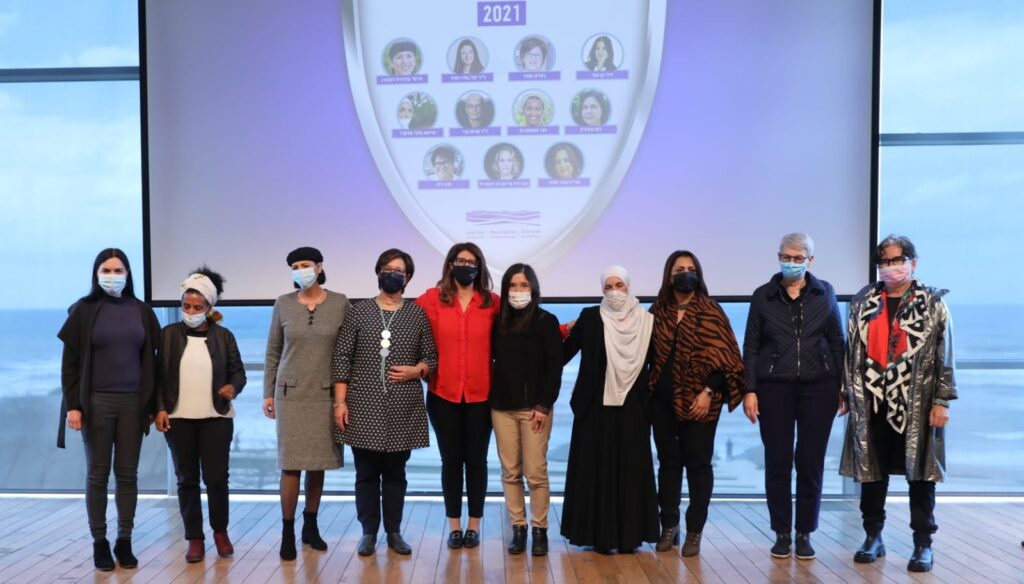

Facebook comments